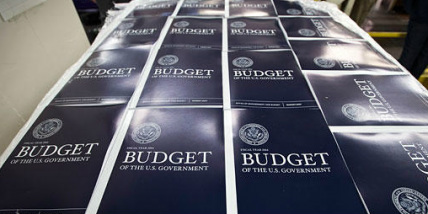
Entitlement Reform
Nobody seriously disagrees with the necessity to insure that financing of retirement benefits guaranteed under Social Security and Medicare cannot be neglected. With an understanding that entitlement reform is necessary to compensate for changing demographics, medical advances and life-expectancy, people of good faith must come to the negotiating table without a hidden agenda to abolish the programs that generations of hard-working Americans depend on.
Too often, positions expressed in the lead up to an Election Day tend to walk a verbal tightrope to avoid offending (i.e. losing votes) those who are approaching their retirement age. Ideas like "no changes will affect people over 55" it concerns me that (a) the proposal is not serious and (b) what about those who are 54?
Raising the retirement age to a more realistic number, based on fairness to all and contemporary data, makes more sense. It would still permit those who choose to retire earlier to do so, as they do now. Suppose it was agreed that by the year 2058, the retirement age would be 70. To get from here to there over the course of 44 years, everyone between the ages of 21 and 65 today would be given a newly-calculated date-certain when they will qualify for their retirement benefits. For those in their 60's today, that date would be only a few days beyond their 65th birthday. For those in their 20's the date would be closer to their 70th birthday. Thus, this new program would take effect gradually, day-by-day. If you are between the ages of 21-65 and you want to see how this new idea would affect your retirement, visit this page and enter your own date of birth to see when you would qualify for retirement under this plan.
Nobody seriously disagrees with the necessity to insure that financing of retirement benefits guaranteed under Social Security and Medicare cannot be neglected. With an understanding that entitlement reform is necessary to compensate for changing demographics, medical advances and life-expectancy, people of good faith must come to the negotiating table without a hidden agenda to abolish the programs that generations of hard-working Americans depend on.
Too often, positions expressed in the lead up to an Election Day tend to walk a verbal tightrope to avoid offending (i.e. losing votes) those who are approaching their retirement age. Ideas like "no changes will affect people over 55" it concerns me that (a) the proposal is not serious and (b) what about those who are 54?
Raising the retirement age to a more realistic number, based on fairness to all and contemporary data, makes more sense. It would still permit those who choose to retire earlier to do so, as they do now. Suppose it was agreed that by the year 2058, the retirement age would be 70. To get from here to there over the course of 44 years, everyone between the ages of 21 and 65 today would be given a newly-calculated date-certain when they will qualify for their retirement benefits. For those in their 60's today, that date would be only a few days beyond their 65th birthday. For those in their 20's the date would be closer to their 70th birthday. Thus, this new program would take effect gradually, day-by-day. If you are between the ages of 21-65 and you want to see how this new idea would affect your retirement, visit this page and enter your own date of birth to see when you would qualify for retirement under this plan.